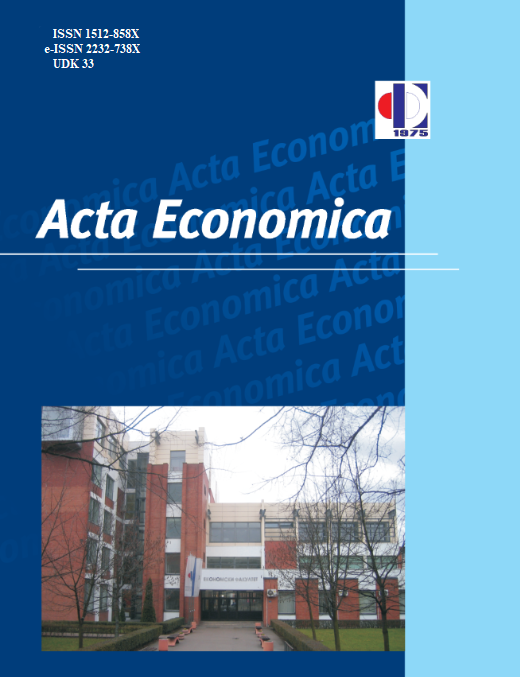ECONOMIC BURDEN OF A NEGLECTED TROPICAL DIS-EASE IN AFRICA: THE CASE OF HUMAN AFRICAN TRYP-ANOSOMIASIS
DOI:
https://doi.org/10.7251/ACE2032037AAbstract
Neglected Tropical Diseases (NTDs) are a category of diseases that cause severe infection to over one billion people worldwide. They impact the world’s poorest people, decrease the quality of life and productivity of employees, hinder physical and cognitive growth, contribute to maternal and child disease and even death. Despite the risks, they are overshadowed by the efforts to fight HIV/AIDS, malaria and tuberculosis, and considered to be “other diseases” that are not really catered for. Hence, this paper analyzed the economic burden of neglected tropical diseases in Africa from 2000 to 2018. Data used were Gross Domestic Product (GDP), human African trypanosomiasis reported cases, current health spending, net official development assistance, consumer price index and exchange rate. The second-generation econometric methods were employed: cross sectional dependence, slope homogeneity, Westerlund cointegration, Pesaran and Smith MG, Pesaran CCEMG and Eberhardt and Teal AMG estimation. Findings confirm the following: first, cross-sectional dependence and slope heterogeneity exist among African countries; second, there is a long run relationship between GDP and NTDs; third, NTDs impacted negatively and significantly GDP, therefore, they stand as a serious detriment to economic growth in Africa. The study suggested that governments in Africa should raise funds to eradicate NTDs and provide an improvement of the environmental conditions that lead to their spread, such as clean water, enhanced sanitation initiatives and vector control.

